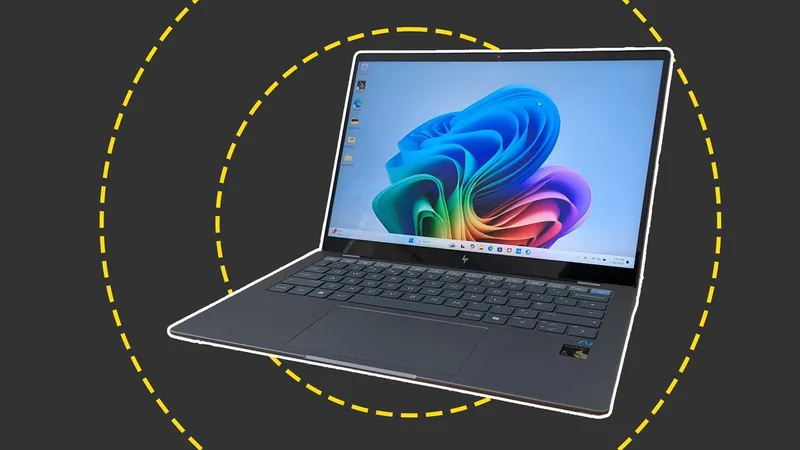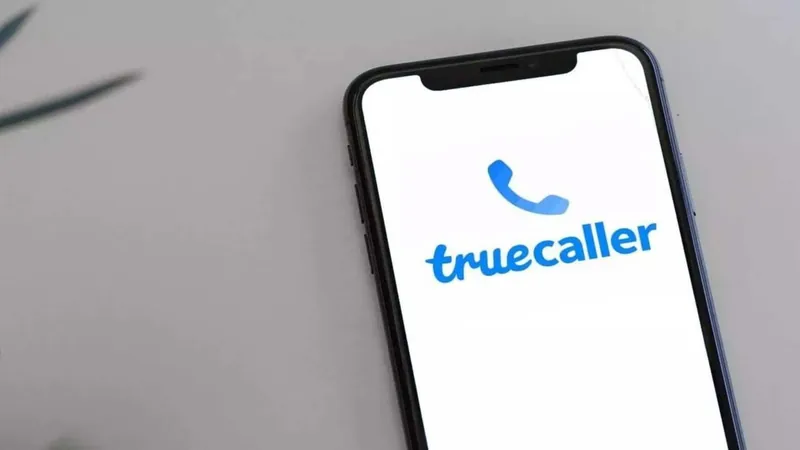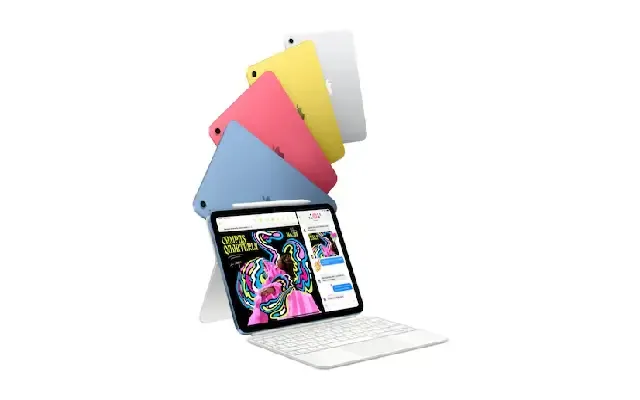
The Revolutionary Impact of Generative AI on Laptops in 2024
2024-12-23
Author: Ming
In the rapidly changing world of technology, each year marks significant advancements in PC hardware, particularly laptops. However, 2024 stands out as a monumental year, heralding the dawn of what many are calling the AI PC revolution.
While the concept of AI-powered laptops began to take shape in late 2023 with the introduction of Intel's Core Ultra 'Meteor Lake' processors and AMD’s Ryzen Mobile 7040 and 8040 series, 2024 is where the true potential has started to unfurl. These pioneering processors were the first to incorporate a dedicated neural processing unit (NPU) alongside the traditional CPU and GPU, designed for accelerated AI tasks. Furthermore, the Windows 11 23H2 update laid the groundwork for integrating Microsoft's Copilot generative AI features directly into the operating system.
Despite these early strides, the initial AI PCs faced challenges. Much of the processing power was cloud-reliant, rendering the NPUs underutilized across various applications. In practice, for tasks requiring heavy computational lifting, laptops outfitted with extensive RAM and robust dedicated GPUs remained the preferred choice over these newly minted AI models.
Game-Changer: The Emergence of Copilot+ PCs
The landscape took a crucial turn in May 2024 when Microsoft unveiled its Copilot+ PC initiative. This game-changing program didn’t merely add generative AI features to Windows 11; it showcased dedicated hardware innovations, featuring flagship devices like the seventh-generation Surface Laptop and the 11th-generation Surface Pro tablet, exclusively designed for AI applications. Partnering with Qualcomm, Microsoft made compelling advances in both AI feature adoption and NPU integration within third-party applications, urging developers to adapt their software for ARM64 architecture.
With the Copilot+ PC specifications, Microsoft established a new gold standard: laptops equipped with at least 16GB of RAM, 256GB of storage, and an NPU capable of 40 Tera Operations Per Second (TOPS). This clarity gave customers the assurance that such machines could handle both existing and emerging generative AI applications, fueling an expansion of software that leverages NPU capabilities, including popular programs like Affinity Photo 2, Blender, and DaVinci Resolve.
While Microsoft Office tools like Microsoft 365 haven’t yet utilized the NPU’s full potential, forthcoming updates may change this paradigm. Additionally, enhancements in audio and video quality through features like Windows Studio Effects promise greater efficiency, adding to the appeal of AI-powered laptops for consumers focused on battery life.
Laptops like the Surface Laptop 7 and Surface Pro 11 are not only powerful but aesthetically striking, offering weight and slim profiles that rival competitors. The Snapdragon X processors have set new records in energy efficiency, leading to truly exceptional battery life, exemplified by HP’s Omnibook X 14, which astonishingly endured 19 hours in a video rundown test.
Competitors Not Far Behind
As the Copilot+ initiative gained steam, Intel and AMD were eager to participate, introducing their compliant AI processors—the Intel Core Ultra Series 200 and AMD Ryzen AI 300 series. These innovations promised superior NPU performance and enhanced integrated GPUs. However, as of early December 2024, Microsoft had yet to roll out Copilot+ features for these Intel and AMD devices.
The competitive landscape underscores a growing urgency among manufacturers. Companies like HP and Lenovo are racing to enhance their offerings, while other tech giants, including Google and Apple, are also making strides in the AI realm. Google revealed its Chromebook Plus initiative powered by Gemini AI technology, introducing compelling features that seamlessly integrate within Chrome OS and Google Workspace. Apple has similarly launched its own AI enhancements applicable to MacBooks, suggesting a broader industry trend toward AI integration.
Future Outlook: Will AI PCs Dominate?
Analysts remain divided on whether AI PCs will become standard issue in the future. Ranjit Atwal from Gartner has suggested that integrating AI NPU capabilities will soon be seen as an essential component of most PCs. Companies might not pay a premium for such features; instead, they may seek AI PCs to ensure they are future-proof and maintain higher security.
However, compelling reasons must be provided to entice enterprises to embrace these AI advancements. Microsoft, alongside Apple and Google, is urged to present more substantial value propositions to organizations beyond thinner models or improved battery life. Evidence of a shift includes enhancements to features like Windows Search and context-sensitive suggestions that harness AI to improve user experiences.
While the journey toward "AI PCs" may appear steeped more in hype than reality at this moment, the potential for genuine transformation in the laptop ecosystem is palpable—with the right substance, these AI-driven devices could shape the future of technology. Stay tuned, as the next generation of laptops is just around the corner!




 Brasil (PT)
Brasil (PT)
 Canada (EN)
Canada (EN)
 Chile (ES)
Chile (ES)
 España (ES)
España (ES)
 France (FR)
France (FR)
 Hong Kong (EN)
Hong Kong (EN)
 Italia (IT)
Italia (IT)
 日本 (JA)
日本 (JA)
 Magyarország (HU)
Magyarország (HU)
 Norge (NO)
Norge (NO)
 Polska (PL)
Polska (PL)
 Schweiz (DE)
Schweiz (DE)
 Singapore (EN)
Singapore (EN)
 Sverige (SV)
Sverige (SV)
 Suomi (FI)
Suomi (FI)
 Türkiye (TR)
Türkiye (TR)